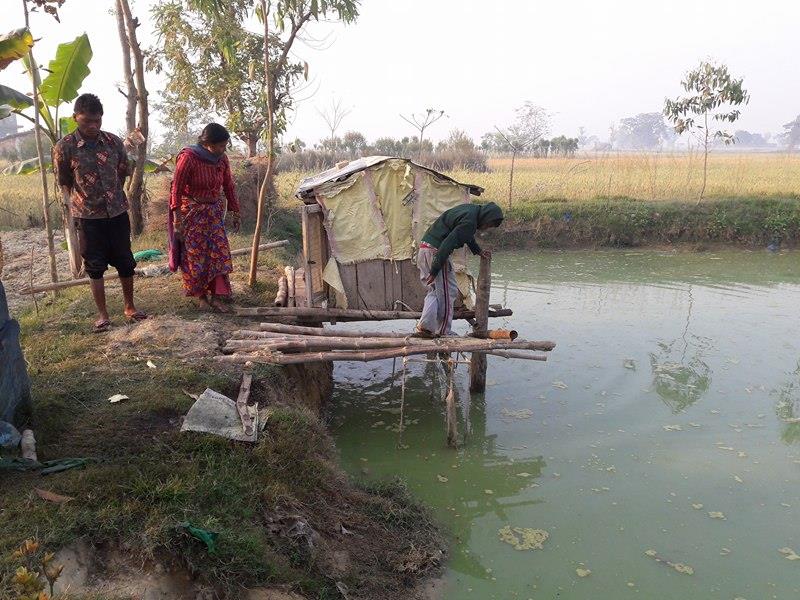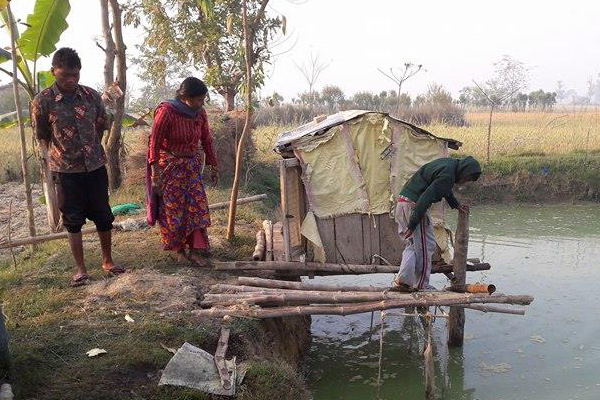
Volunteer Post
Nepal Farmers Are Quick To Adopt Simple Aquaculture Technologies
F2F Volunteer, Dr. Hugh Thomforde
Fish farming, beyond other agriculture activities, is practiced by youth as a main source of income in Nepal. Gaining skills on improved management practices like water quality management and learning to adjust inputs based on pond fertilization results, can lead to decreases in fish mortality rates, and thus diminish economic losses for youth-led businesses.
F2F volunteer, Dr. Hugh Thomforde earned his PhD in Fisheries Management from Auburn University and was an Aquaculture Extension Specialist for 17 years at the University of Arkansas. He recently returned from a rewarding assignment in Nepal where he worked with youth from the Sahodar Agriculture Cooperative to improve their fish pond management skills.
“The Secchi disk is a low-tech tool to assist fish producers in making management decisions regarding feeding, fertilizing, and water quality. Members of Sahodar Agricultural Cooperative at Shiktahan Village in southern Nepal were introduced to this device on the first day of training. Ms. Pabita Dewi Chaudary went home and made one from found materials. She used a novel method. She molded cement in a bowl for the bulls-eye base, with an old flag pole set vertically in the middle for the handle. These photos were taken the next morning. We see Shailesh Gurung of Tribhuvan University coaching Ms. Chaudary (foreground) and Ms. Taru as they learn how to use this tool to measure phytoplankton density.”
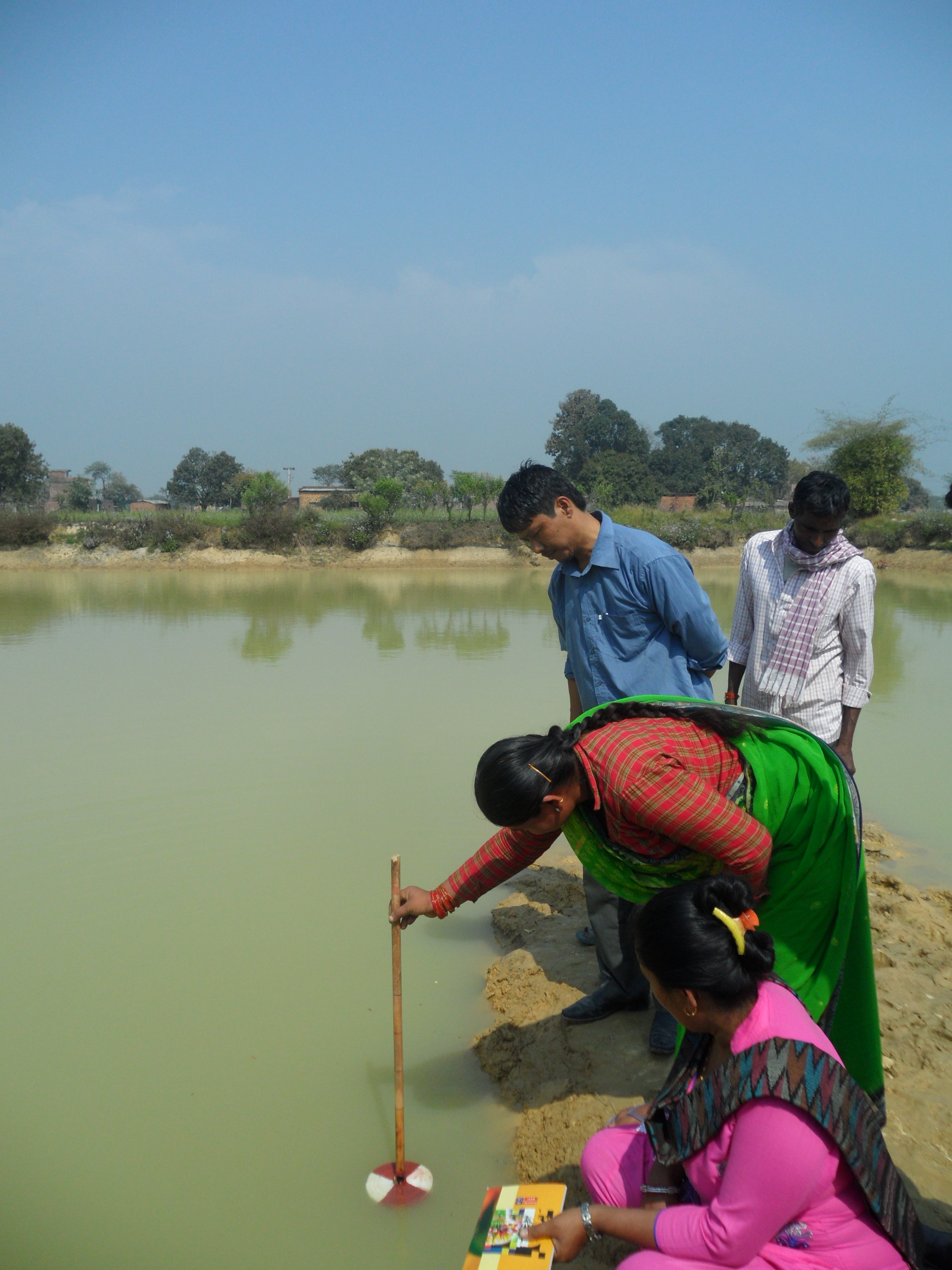
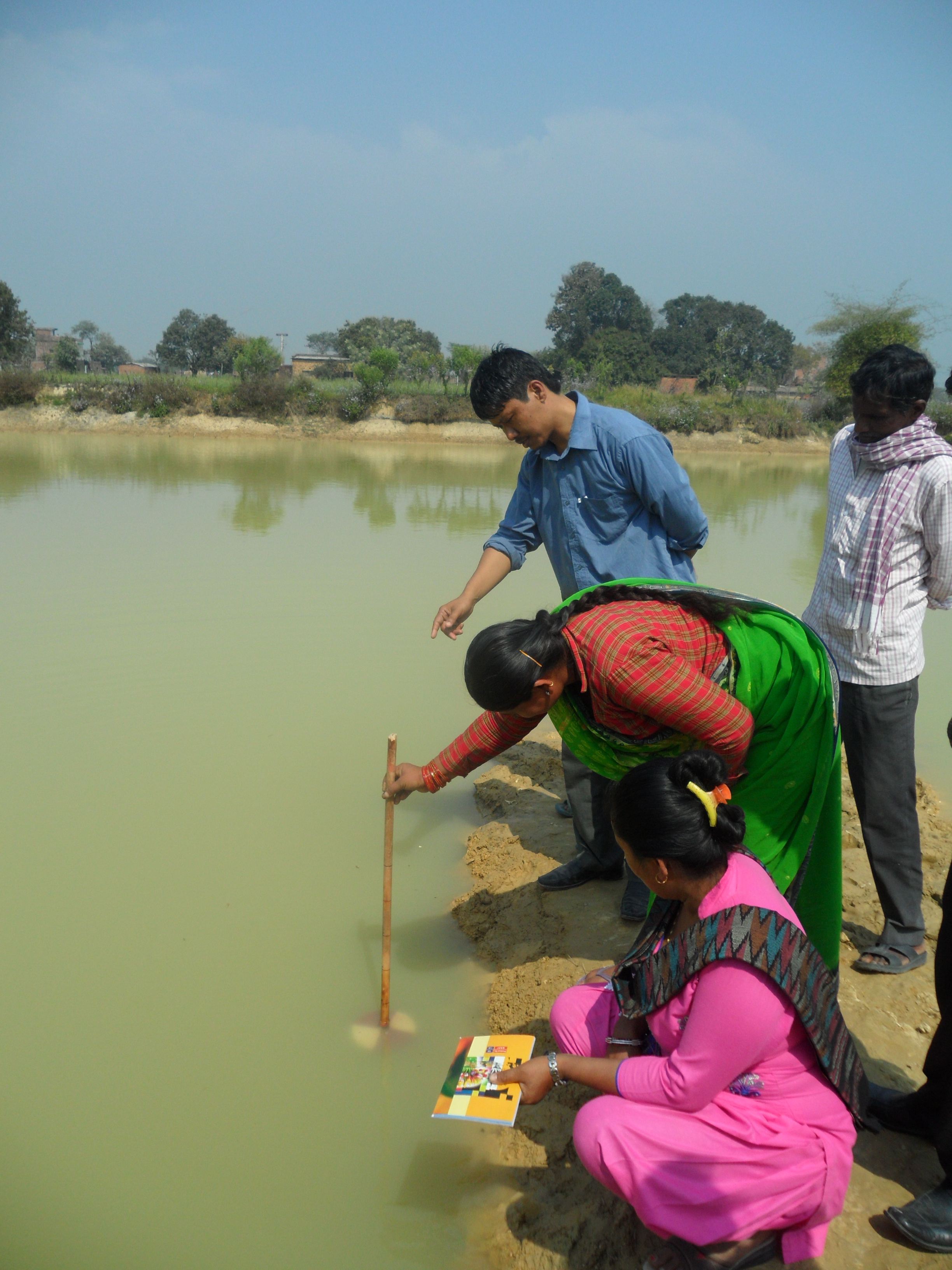
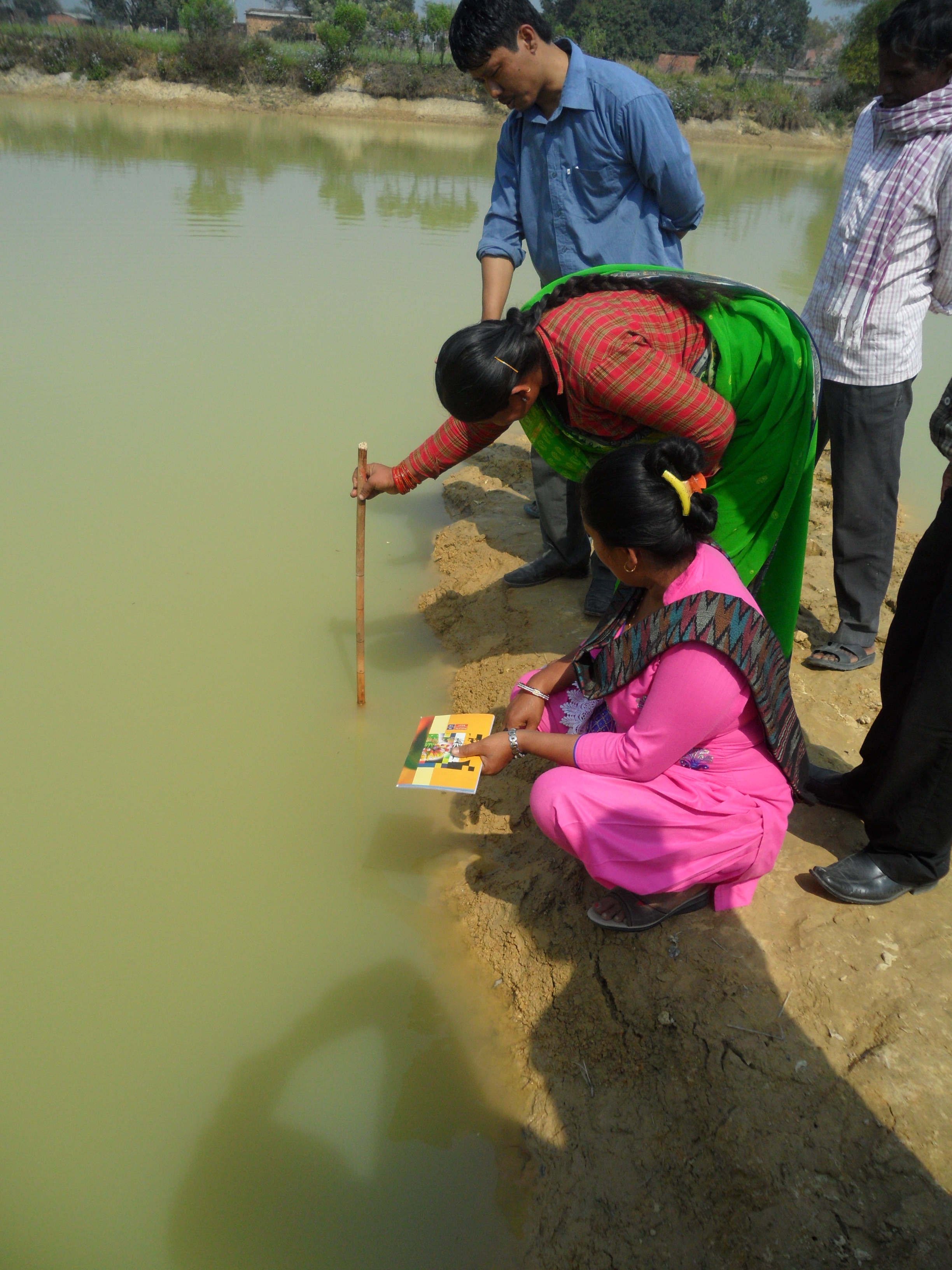
“The livestock pen shown below was built by Ram Kumar Tharu, Chairperson of the Sahodar Agriculture Cooperative on March 8th, showing quick implementation of one of my recommendations. Animal waste will drop directly into the pond, providing fertilizer to plankton and supplemental feed to carps. It is the first of its kind in the area. The photo came via Shailesh Gurung, who says other cooperative members will monitor the results closely.”